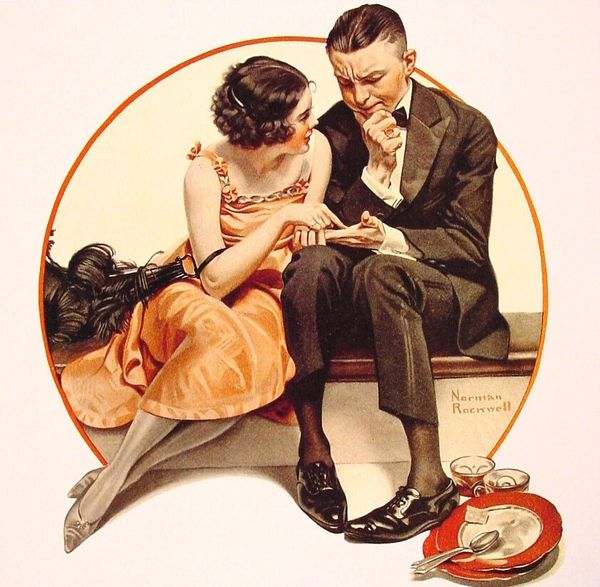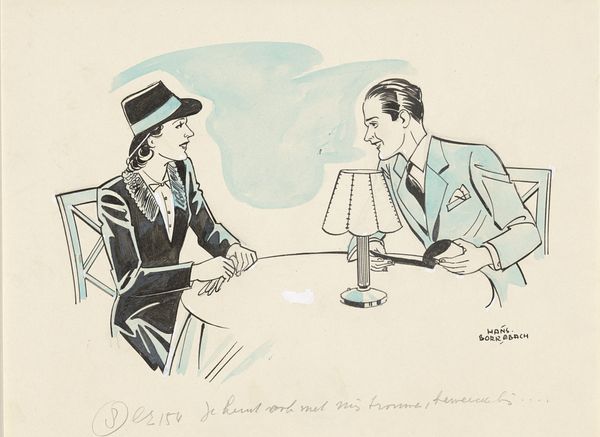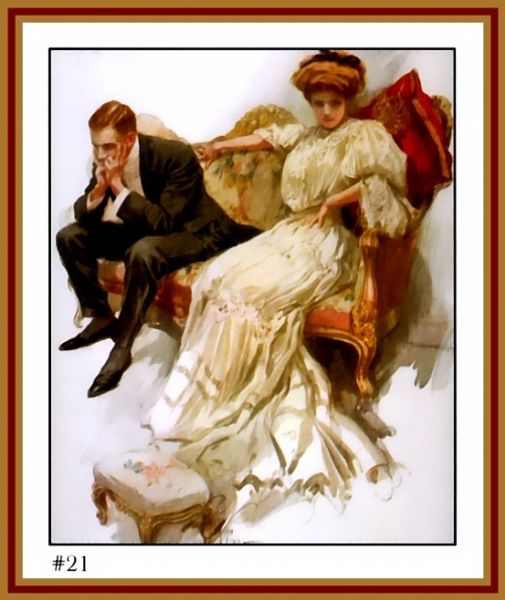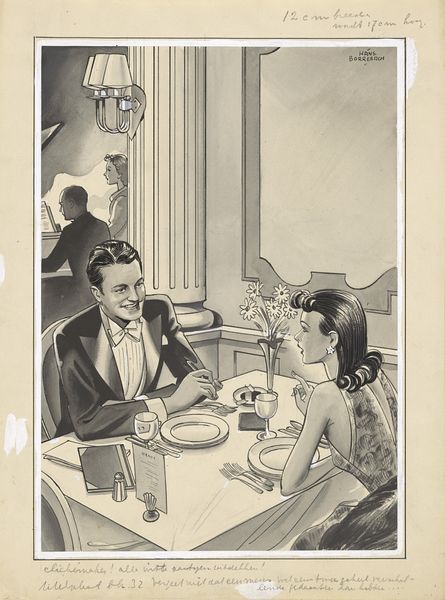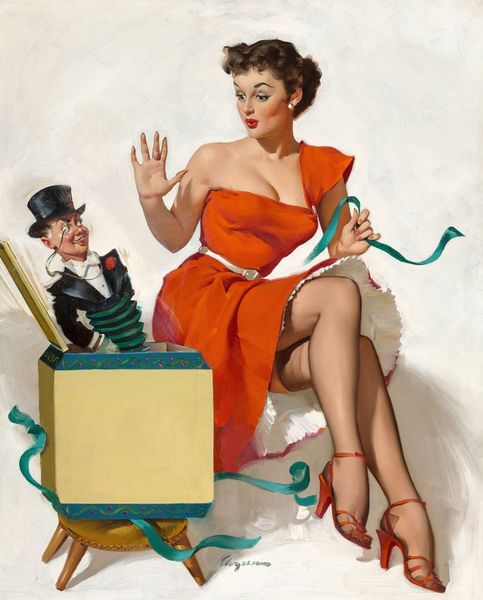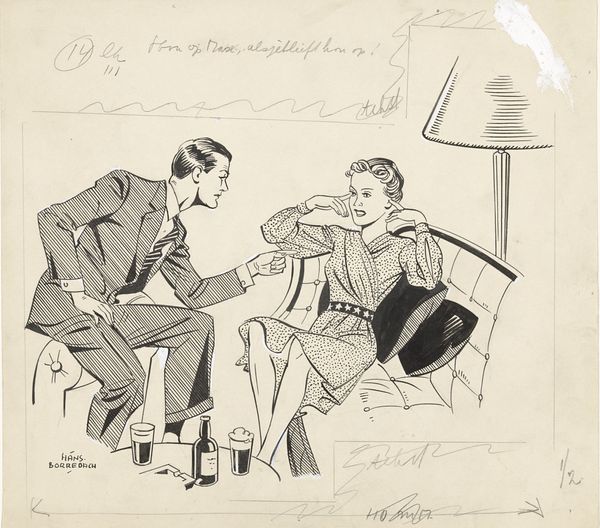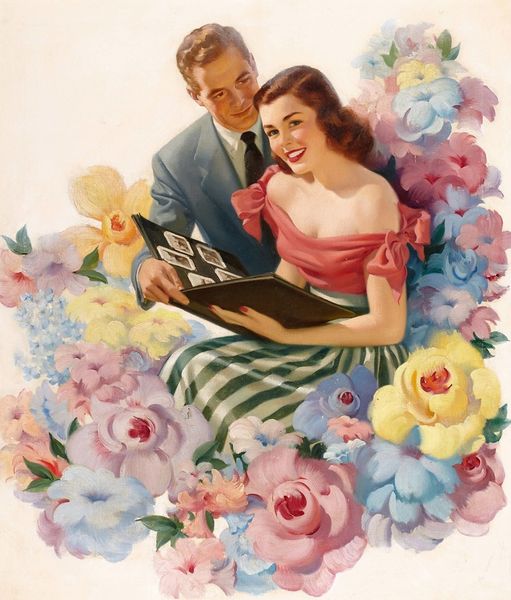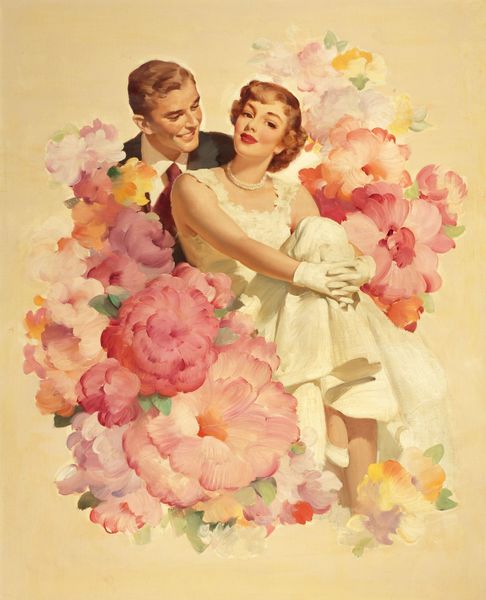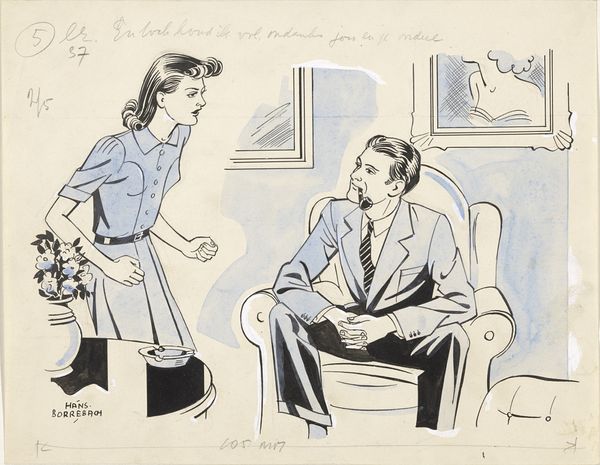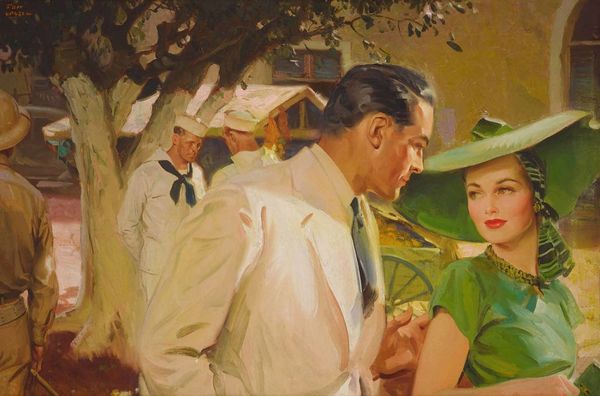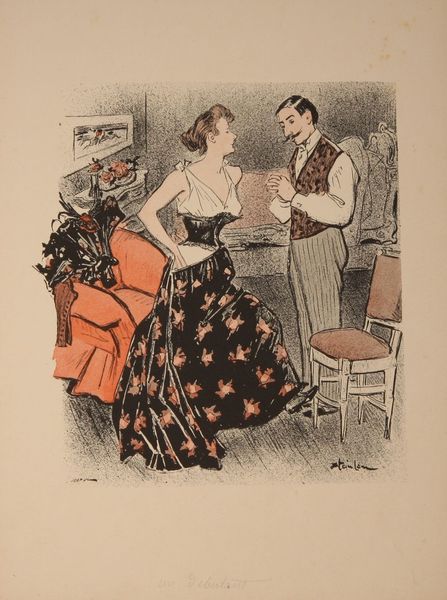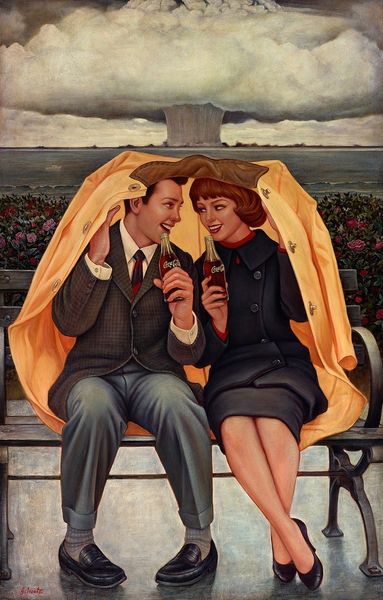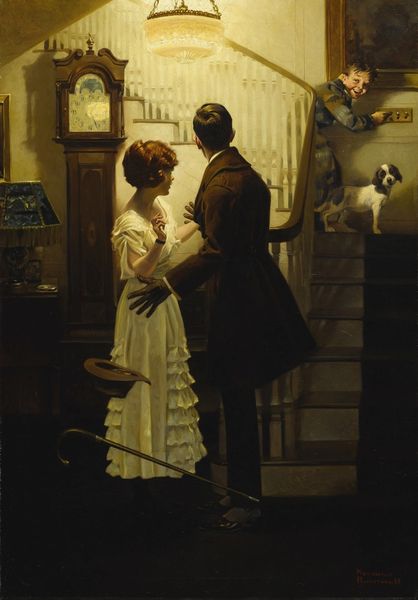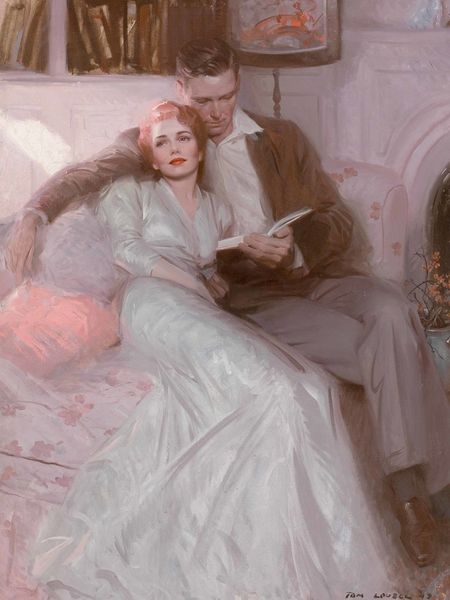
Copyright: Modern Artists: Artvee
Curator: Norman Rockwell’s 1920 painting, "The Ouija Board", always makes me chuckle. What is your first take? Editor: Anxious amusement! There's a clear tension between skepticism and wide-eyed wonder here. You see it in the man's sly smirk against the woman's…longing? Curator: It's masterful. The whole scene feels meticulously arranged to play on those dualities. Rockwell was so brilliant at capturing these kinds of moments. Did he really think this stuff worked, do you reckon? I guess people went wild for the Boards around that time... Editor: They did. After World War I and the 1918 flu pandemic, there was an immense turn toward Spiritualism. Trying to contact lost loved ones, grappling with massive social upheavals... It’s also key to acknowledge how these spiritual movements became intertwined with the struggle for women's rights. Speaking to spirits allowed women to transcend societal constraints, and gain authority and visibility in realms typically reserved for men. Curator: I love that insight. I never considered it, I see it here too—she's looking upwards, lost in this other world of possibility; meanwhile, the man is simply gazing at her. She is dressed quite simply, the man more formal, but he’s a bit slouchy and casual with her as if…oh, it has a wonderful air of secrecy too! The soft palette, that gold circle hovering around them, the whole scene radiates an aura of hope and just the faintest shadow of impending disappointment. Editor: Spot on. He’s enjoying the charade. Notice how the "YES" and "NO" are strategically placed near the sitters on the board. "YES" near the male figure who enjoys the 'show', "NO" near the dreamy female figure. There is almost a paternalistic quality to the scene, he has placed himself as her guiding compass to reality. Curator: It almost looks as if there is a game between them both. Editor: Well, that's it really, the real drama lies not with any spirits they’re contacting, but within their human relationship. Rockwell captured their expressions with subtle genius. The gender politics are at the forefront for me; what did these Ouija rituals enable? What were the consequences, who benefitted, and who was exploited? Curator: I can see why it would speak to that so strongly, very different from my perception, it seems there is more mystery here to unfold... Editor: Indeed! A ghost of gender and politics within a playful composition of brush strokes and societal history.
Comments
No comments
Be the first to comment and join the conversation on the ultimate creative platform.
